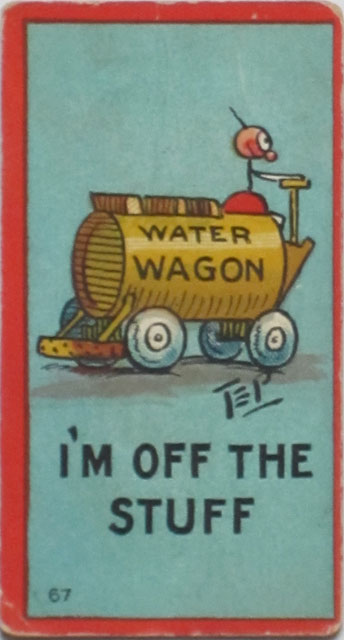Next Generation SEO

There is a good thread on Webmaster World entitled “Next Generation SEO”. Many webmasters hit hard by the uncertainty created by Panda and Penguin are wondering what approaches might work best in the future.
Here at SEOBook, we’ve long advocated the approach of grounding SEO within a solid marketing-based strategy, so we post frequently on this theme. But this is not to say the technical side - algorithm gaming - no longer works, because it most certainly does.
Let’s take a look at both approaches, and how they can be fused.
Rationale Of SEO 
The rationale of search engine optimization is simple. If we can work out what factors the search engine algorithms favor, we can do more of it. Our reward will be a high ranking, meaning more people can find us, which results in more traffic.
In theory, the incentive of the search engine and that of the SEO should be aligned. The SEO works out exactly what the search engine wants, and hands it to them on a plate.
The problem is reality.
Search engines, in reality, aren’t near as clever as those running them sometimes make out. They are susceptible to gaming. Sergey Brin, a few years back, even went so far as to suggest “there is no spam, only bad algorithms”. The existence of a webspam team appears to indicate the algorithms still need plenty of work.
There are other problems in terms of incentives. The search engines make their money not by the relevance of the search results, but by the relevance of the advertising. Unless competition is finely balanced between search engines - which it hasn’t been for many years now - the search results need only be “good enough”. Does a search engine really want the searcher finding the most relevant content in the main search results? The business case would demand something a little more subtle, which is not good news for webmasters who rely on gaming the algorithms.
Secondly, a search engine would prefer the money being spent on SEO was going into PPC. If it is considerably cheaper to game the algorithm than run PPC, then few people would bother with PPC. In this respect, SEOs are a competitive threat to the search engines advertising business, yet the incentive for the webmaster is to minimize marketing spend. The search engines, therefore, would have an incentive to drive up the cost of SEO.
Gaming The Algorithm 
Given search engine algorithms aren’t yet as clever as those who run would like them to be, the search engines engage in a mixture of algorithm adjustments and FUD in order to counter the effectiveness of search engine optimization. Lately, they have been ramping up activity in both areas, which suggests to me that they see “enthusiastic” search engine optimization as a significant problem.
SEO is a significant problem because it works.
The minute something starts to work a little too well, and the knowledge of how to do it becomes a little too widespread, the search engines have typically jumped in to reset the game. This tends to affect the “low-hanging fruit techniques” i.e. anything that is cheap to do, widely known, and therefore widely practiced.
Take link building. It’s a well known fact that links will result in higher rankings. Google recently jumped into this area, with a mix of adjustments and FUD, to scare off those who buy links. We have the now ridiculous scenario whereby webmasters are paying to have links removed. I can imagine the Google “web quality” team in fits of laughter. Meanwhile, a cottage industry has sprung up in response i.e. people demanding money to delink.
Many of the links webmasters are removing aren't causing the problem.
Link buying still works. Webmasters just need to stay away from the most blatant “low hanging fruit techniques”, such as identical anchor text and obvious paid link networks. At SEOBook, we’ve made side-by-side comparisons of sites that were harmed by their links, and those that weren’t, yet there are often only minor differences in their link graphs. Paid links aren't the problem. Failing to mix it up is the problem.
Search engine optimization is also about content, and the evidence doesn’t suggest that having a lot of content is a negative. It depends where content sits. If the domain has a strong link structure, then the content can be....less than stellar. If your site lacks a stellar link graph, then it becomes more important to have engaging content i.e. fewer immediate click-backs
Moving Forward 
The problem with algorithmic-centric approaches is that when the algorithm shifts, so too does the approach. This is fine for people who like chasing the algorithms. It works less well for those who don’t have a lot of time and money to spend doing so, or have less scope to radically change approach.
“Next generation SEO” is essentially “marketing”, whilst keeping the search engines firmly in mind. It's what good SEO has always been about, it's just that some in the industry have lost focus and become obsessed with traffic for its own sake.
It’s about looking at the underlying business to find problems and opportunities. It’s about focusing on the needs of the visitor to help ensure higher conversion rates. This means optimizing for usability, conversion, and relevance.
It’s about building links for traffic, juice and awareness. It’s about establishing networks, particularly in the social space, as we have to go where the people hang out. It means paying attention to the rise of mobile usage. It means paying attention to verticals, such as Amazon. There is evidence to suggest people are moving away from search engines, or not using them quite as much.
In short, SEO will become more like a pay-per-click approach, without paying per click.
Mix And Match
This is not to say you need to do any of the above. You can still do well in SEO by publishing pages and pointing links at them. However, there are many aspects that can be optimized. If nothing else, optimizing a web business can be more fun, and more prosperous, than chasing Google’s near constant algorithm updates in pursuit of raw traffic.
SEO will be around for many years yet. Whilst search engines are a conduit for traffic, then there will be people doing SEO. It’s fair to say the barrier to entry has been raised, so it’s now more difficult and therefore costly to undertake SEO. This flushes out some competitors, however it is rarely those with holistic marketing strategies that get flushed.




Comments
the search results need only be “good enough”
the search engines [...] have an incentive to drive up the cost of SEO
Both are true, and both point to an uncomfortable conclusion: in the long run, nothing keeps Google from randomizing its business-related search results.
While information-oriented sites can be ranked by Google's algorithm reasonably well, in the case of business sites there is no useful online quality signal to lean on.
Most of what makes companies good or bad is offline, subjective, or not processable for an algorithm, so search engines use dummy signals for ranking purposes that have no meaningful connection to real-life quality factors.
Dummy signals can thus never ever provide a valid ranking of businesses, just a more or less relevant set of results. (That's today's reality, and users don't seem to mind...)
As long as the SERP stays altogether relevant, most people making a search won't care about which particular 10 sites they are shown and in what order; so Google might as well throw the dice each time a search is made (always supposing, of course, that there are at least 10 relevant sites for that query).
When this randomization becomes a fact, a presence in the organic results will cease to be a reliable source of traffic and income, and only AdWords might offer predictability.
From that moment, SEO will no longer be a creative and competitive activity, and will instead degrade into a standard site maintenance task: to ensure that the site is included in the larger set of relevant results from which Google selects its random 10.
I agree, Headway, especially with your conclusion. The more generic the search, the more Google can randomize results. It would be the death of a large part of SEO.
I suspect this is another reason why brand recognition - and brand searches - will become more important. If Google doesn't show the brand owner at #1, Google looks deficient.
There are still many aspects to optimize.
...if Google had designs on Page 1.
It saddened me when I realized I now espouse a position I once wrote off as "clueless amatuer", but an unbiased analysis can now lead to only one conclusion - which Aaron has championed for some time.
In a post I intended to write as a light-hearted poke at Google, I ended up summarizing the point: Google not only has designs on Page 1, but considers it an "entitlement" - and for better or worse, they are 'entitled': 100kblueprint.com/2012/08/seo-is-theft-seo-is-dead
You mention content, and of course it shouldn't be forgotten that if your content is appropriate to the serach term, you 'should' score highly in search results - any updates to the algorithm 'should' be geared at promoting sites with good content. I think the first principle of SEO should be good content, in the end, Google is supposed to be searching for good content.
I do however have a bone to pick with the obession that Google has for punishing paid posts and paid links when they themselves charge for links via Adsense. I don't mind that Google pay me for Adsense running on my sites, I am concerned however that they should seek to punish the same sites for running 'adverts' that are directly paid for by a client - seems like a 'have your cake and eat it' kind of scenario.
Add new comment